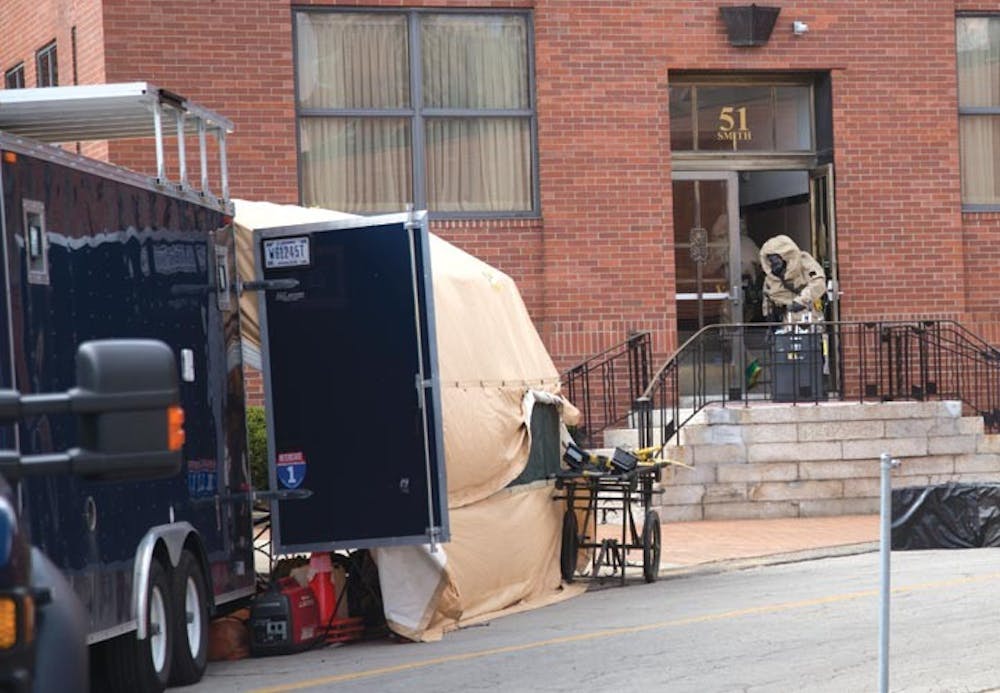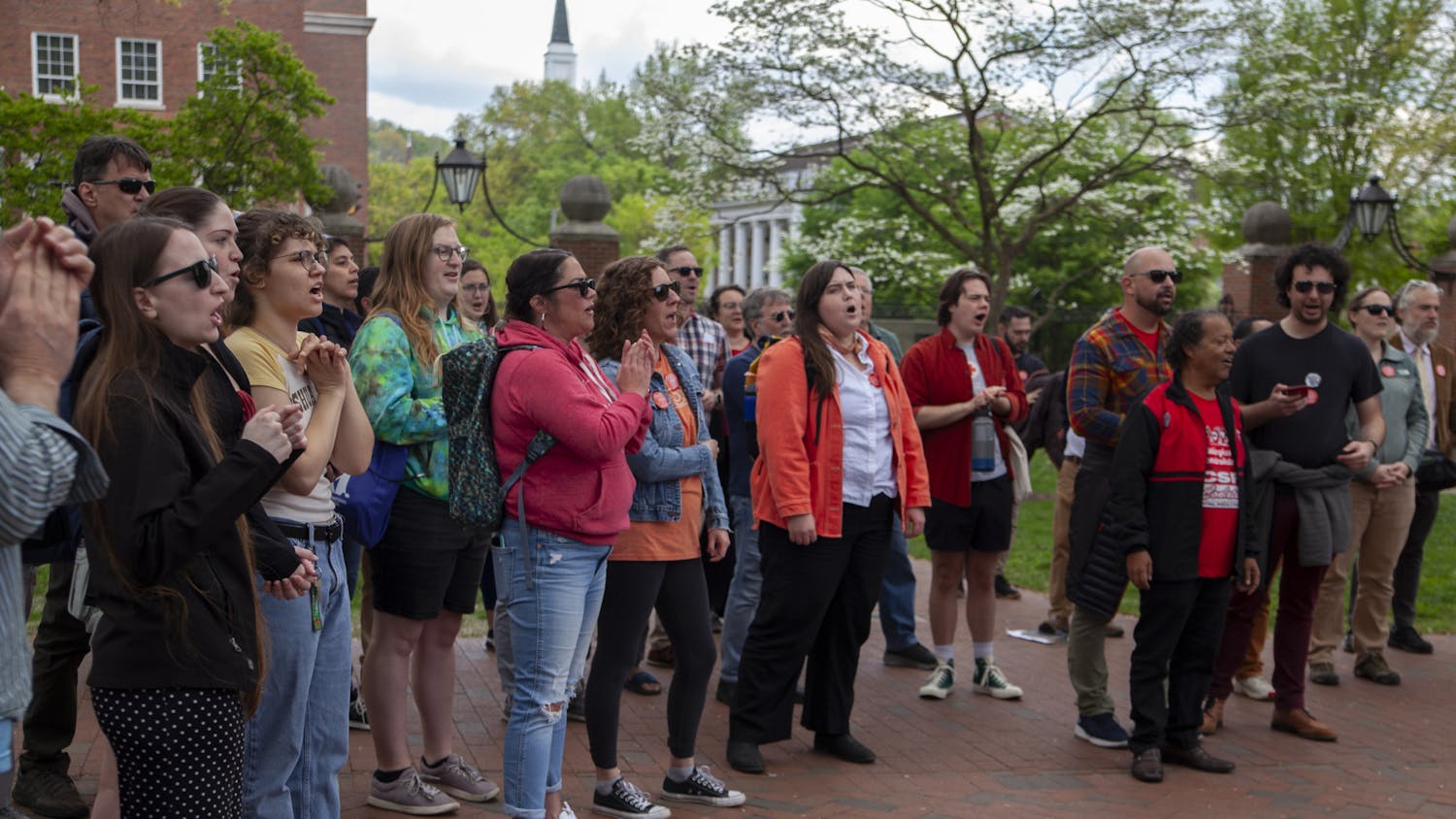More than a week after deadly ricin was intercepted at off-site mail facilities for the United States Capitol Building and White House, an Ohio University office and local bank had a similar scare Thursday morning.
The Ohio University Police Department responded to the 160 W. Union St. Office Center at 11:18 a.m. after an employee at the OU Legal Affairs office reported opening an envelope that contained a white, powdery substance.
The employee was later hospitalized and subsequently released, according to a statement from Stephen Golding, OU vice president for Finance and Administration.
Initial field tests on the substance came back negative for harmful biological substances, OUPD Chief Andrew Powers said, adding that the contents of the envelope would be sent to Columbus for further tests.
After the substance was discovered, OUPD officers evacuated People’s Bank and the OU Legal Affairs office section of the building and isolated the area, according to an OU release, which added that all other areas of the building were not affected.
The intersection of West Union Street and Smith Street was barricaded, closing Smith Street to the public, Golding said in the statement.
The incident is being investigated by OUPD with the help of the Federal Bureau of Investigation and the 52nd Civilian Support Team of the Ohio National Guard, Powers said.
The United States Postal Inspection Service is also conducting an investigation, said Alejandro Almaguer, USPIS public information officer.
Since U.S. Senate and news media offices received letters containing anthrax in September and October of 2001, the USPIS has seen a rise in letters containing biologically harmful substances, Almaguer said.
Two days ago, U.S. prosecutors dropped charges against Paul Kevin Curtis, a Mississippi man accused of sending ricin-laced letters to President Barack Obama, a U.S. senator and a state judge.
Though Thursday’s incident came less than two weeks after the ricin mailings in Washington, D.C., the letter represents an isolated incident that isn’t an ongoing threat to campus, Powers said.
“There’s no reason to believe it was part of some higher conspiracy,” Powers said. “No other suspicious items or packages were found on campus.”
sh335311@ohiou.edu






